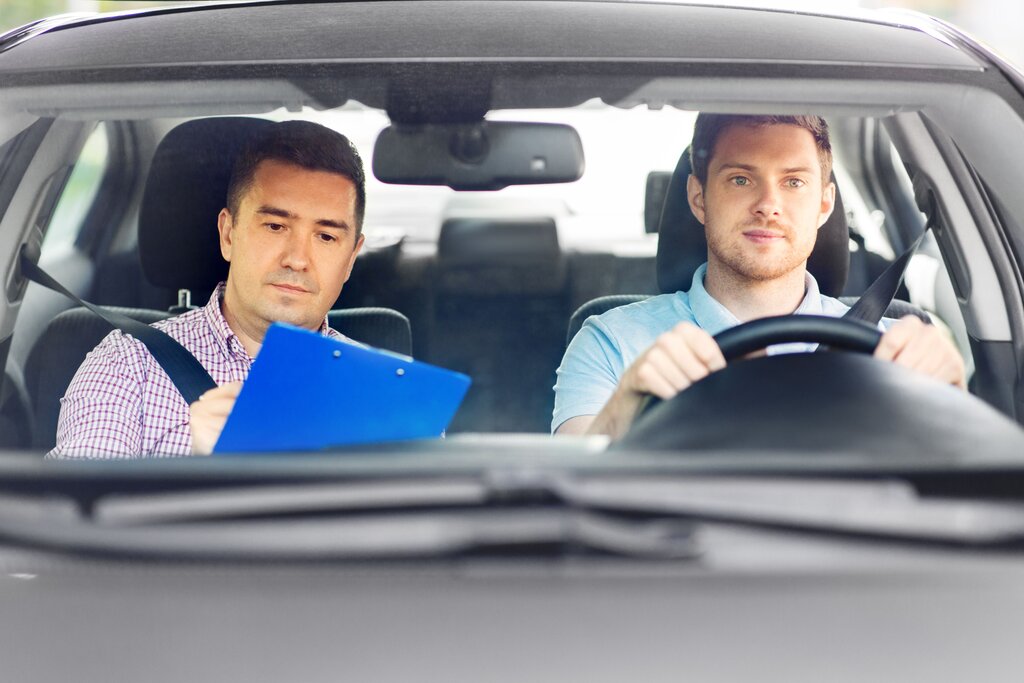Understanding Driving Lesson Tax Deductions

Driving lessons can be a considerable expense, particularly for those who need their licence for work purposes. However, the question of whether these costs are tax-deductible is one that frequently arises among taxpayers. We aim to clarify whether driving lesson expenses can be deducted from your taxes in the UK.
Individuals and businesses alike might wonder if obtaining a driving licence can offset some taxable income due to its necessity in certain job roles. This is especially pertinent for self-employed individuals who drive for a living or employees whose positions require a specific type of driving licence.
To provide clear guidance, this article will delve into the specifics of UK tax deductions related to driving lessons, examining current regulations and offering practical advice. While the conclusion might not be as straightforward as some hope, understanding the precise rules can help manage expectations and tax planning better.
HMRC's Stance on Driving Lessons
According to HMRC, driving lessons are generally not considered tax-deductible unless they are an explicit requirement of your job. For instance, training to become a driving instructor or obtaining a professional licence such as an HGV (Heavy Goods Vehicle) might make driving lessons a part of business expenses.
However, for the majority of taxpayers, driving lessons are seen as a personal expense. This classification means they cannot be claimed as a deduction on personal or business tax returns. Understanding this distinction is essential for planning your finances effectively and ensuring compliance with HMRC's regulations. Professional tax advice from the expert tax assistants available on the Pie app can provide further insights tailored to your situation.


Key Tax Rules for Deducting Lessons
It is crucial to comprehend the delineation between personal and business expenses when considering the tax-deductibility of driving lessons. For example, if a company sponsors employees to take up driving lessons as part of a professional development programme, these costs might still not be deductible, depending on their direct necessity for job performance.
Businesses must carefully document and justify the need for driving lessons to claim any tax deductions. This necessity needs to be aligned with the employee's duties and job role, or the business's operational requirements. Consultation with a tax professional, such as those at Pie Tax, can offer tailored advice to navigate these complexities efficiently.

35% of all professional drivers in the UK report work-related driving lessons as a part of their expenses. This number highlights the significant portion of the workforce that potentially benefits from understanding the deductibility of these costs.Claimable Professional Driving Costs

65% of self-employed individuals mistakenly classify personal driving lessons as business expenses. This misunderstanding shows the need for better awareness and education on this tax issue amongst self-employed professionals.Personal vs. Business Driving Expenses

Navigating Tax Deductions for Driving Lessons
Navigating the intricacies of tax deductions for driving lessons involves understanding personal vs. business expenses and ensuring compliance with HMRC rules. Personal driving lessons, such as obtaining a private licence, fall into non-deductible expenses.
However, driving lessons for roles explicitly requiring professional licences may have some exceptions. It’s essential to keep precise records and justify the necessity of these lessons for your professional duties. Always consult with an expert tax assistant available on the Pie app to ensure your deductions are accurate and compliant.
Differentiate Between Deductible and Non-Deductible Expenses
Knowing the difference between deductible and non-deductible expenses can save individuals and businesses a lot of hassle during tax season. Generally, personal expenses such as standard driving lessons fall outside deductible categories.
Expenses must be solely and exclusively part of your business operations to qualify. Professional certifications or licenses directly related to job performance can be an exception but documentation is key. Engaging with a tax professional via the Pie Tax app can clarify ambiguities and optimise your tax strategy.

Tips for Deducting Driving Lesson Costs from Taxes

Keep receipts and records of driving lesson expenses. Detailed documentation ensures you can claim eligible accurate deductions.Document Expenses Carefully

Verify if driving lessons qualify as deductible expenses. Ensure they are necessary for your employment or business.Understand Eligibility Criteria

Consult a tax advisor for guidance. They can help navigate tax rules and maximise your deductions effectively.Seek Professional Advice

Unique Driving Lesson Facts
Did you know? In the UK, driving lessons for becoming a professional driving instructor can often be claimed as a business expense. However, it's essential to meet HMRC's stringent requirements and maintain proper documentation to justify this expenditure. This unique avenue highlights how specific roles can benefit from understanding tax deduction rules.
Expert Guidance for Tax Deductions

You can quickly access your income tax online. The Government Gateway will help you to sign into your personal tax account. This allows you to access information about your tax position for previous and current tax years, as well as update your details with HMRC. It’s essential to keep your tax information up-to-date to avoid overpaying or underpaying income tax.
By regularly checking your income tax online, you can stay informed about your tax position and take any necessary action to claim tax rebates or correct errors. Knowing how much income tax you owe can help ensure you always pay the correct amount of tax and receive any tax rebates you’re entitled to.

Professional drivers can benefit from understanding which of their driving-related expenses are deductible. For instance, obtaining an HGV licence necessary for work can be deemed a business expense. Using Pie Tax, professionals can access tailored advice to navigate complex tax rules efficiently. The expert tax assistants available on the Pie app provide bespoke guidance, ensuring clarity and compliance.Professional Driver Tax Tips

Self-employed drivers often misunderstand what qualifies as tax-deductible. Personal driving lessons don’t fall under deductible expenses. Instead, costs like fuel, vehicle maintenance, and insurance often qualify. Using the Pie Tax app can streamline the tax process for self-employed individuals and provide clarity on allowable deductions. This support helps avoid common pitfalls and ensures accurate and compliant tax claims.Self-Employed Driver Deductions
Summary
In conclusion, understanding whether driving lesson expenses can be deducted from your UK taxes hinges on the distinction between personal and business expenses. While regular driving lessons are generally non-deductible, those required for professional roles might be eligible given appropriate documentation and necessity justification.
Utilising tools like the Pie Tax app and consulting with expert tax assistants available on the Pie app can significantly enhance your tax planning and compliance efforts. By leveraging professional advice and staying informed, you can navigate the complexities of tax deductions more effectively and ensure your financial strategies are optimised for maximum benefit.











